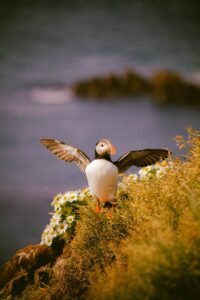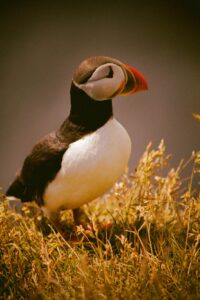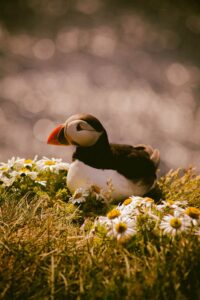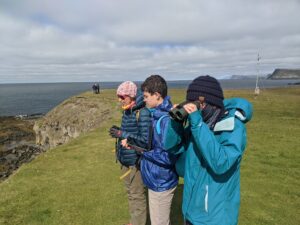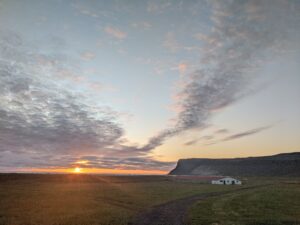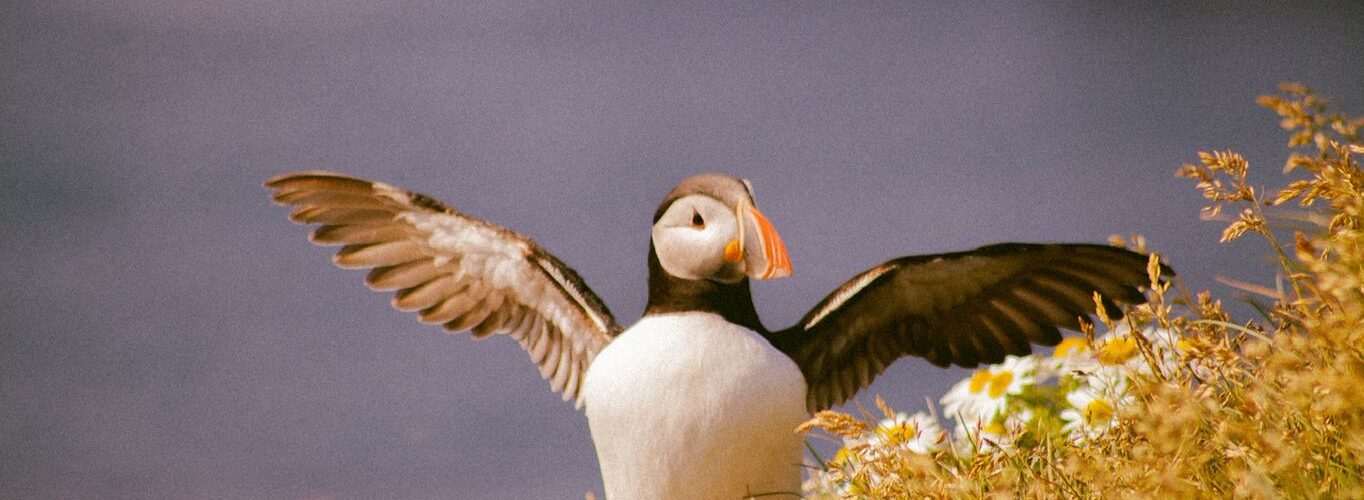This post features student writing.
Atlantic puffins are a small seabird found in the north Atlantic Ocean. For most of the year, they float out at sea, and then nest on coastal cliffs from April to September. While Iceland is not the only country to have puffin nesting sites, it is not called the puffin watching capital of the world for no reason; the Westman Islands on the southwestern coast is home to the largest puffin colony in the world, and puffins can be spotted in many other places along the coastline, like Breiðavík.
The main activity planned for today was to go puffin watching along the cliffs near our accommodations. It was originally decided that we would go earlier in the morning, at 8:30, but Icelandic weather can be unpredictable, and it was too foggy for us to go at that time.
Instead, the group had the freedom to decide to walk down to the beach we were near, go walking around the premises of the hotel, or work on our independent project. In the meantime the program leaders watched the weather to see if we’d be able to go after lunch or if we’d have to wait until after dinner.
The weather had begun to clear up while we were eating lunch, so we headed out to the cliffs. Luckily enough, the fog had disappeared and the sun had fully come out by the time we got to the puffin watching site, even if it stayed windy. Even luckier, there were plenty of puffins at the beginning of the trail, so those that were cold because of the wind didn’t have to wander too far from the building they used as a windbreak.
Some of the group did go up the trail, and encountered not only more puffins, but the gulls and razor-billed auks that were there, too. However, the closer we got to the top of the cliff, the fewer puffins we could find, so we turned back before we got to the very top.
Before we left, seals were spotted near the rocks at the bottom of the cliffs. They weren’t close to us, so it was hard to get pictures they were visible in. A few were fully on the rocks, and could be seen with binoculars, but most were swimming around with their heads poking out of the water.
— Grace
